Inventory of relevant SOGIESC case law and pending cases before the ECtHR and CJEU 2025
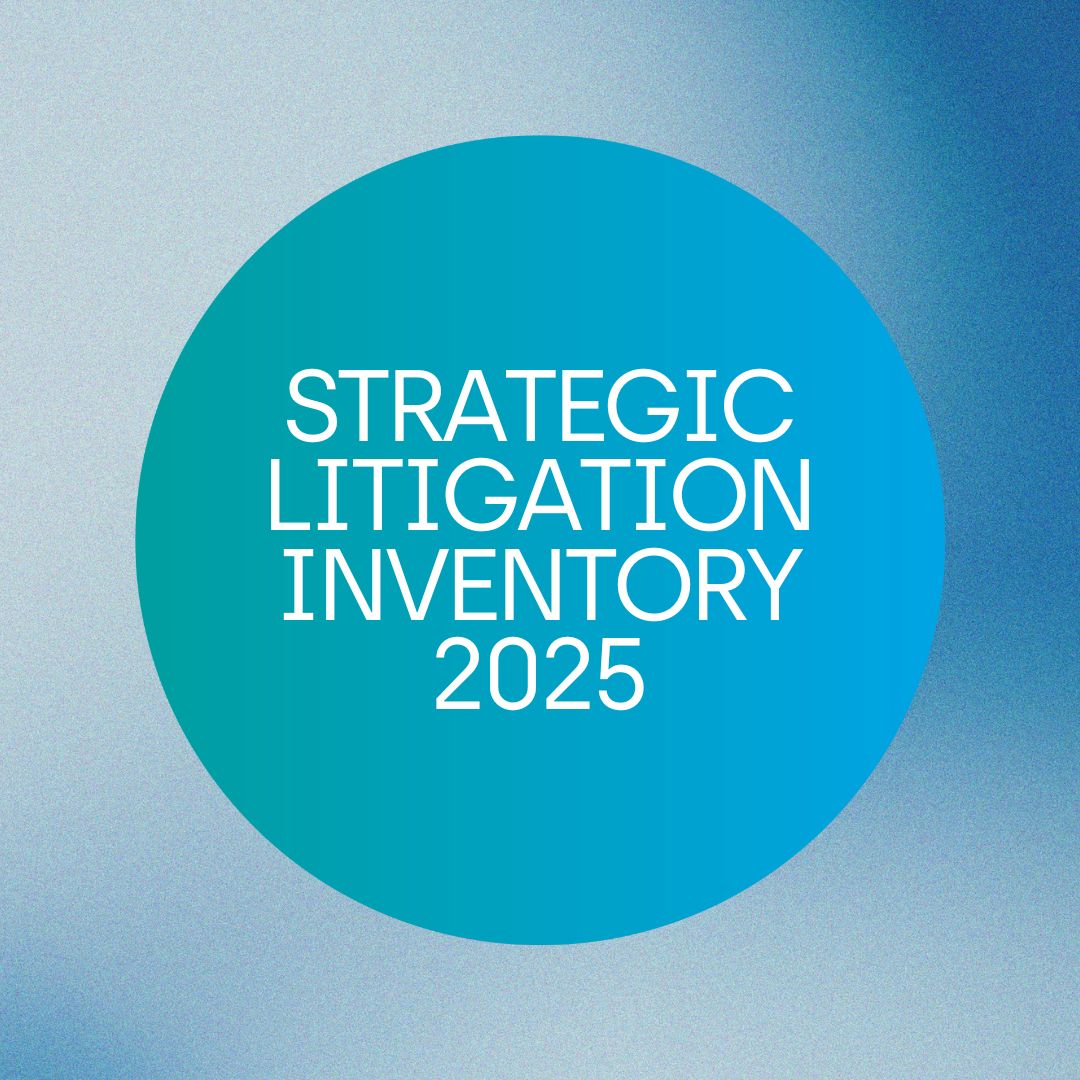
In order to focus our strategic litigation efforts across Europe to fully protect and advance LGBTI rights, with this inventory ILGA-Europe wants to support members and partners across the region to identify trends and gaps in protection at the European level, which can commonly be tackled through litigation. The inventory can further strengthen cooperation and help guide our work and efforts by others in bringing forward and supporting strategic cases.
This inventory and continuous assessment of the European landscape informs ILGA-Europe’s ongoing engagement in strategic litigation through identification and support of strategic opportunities.
This inventory covers relevant SOGIESC cases from 2010 up until December 2024.
European court rules teacher’s dismissal over gay blog violated free speech

The European Court of Human Rights rendered a judgement in a case where the Polish authorities fired a school teacher for writing on a blog for adult gay men featuring some sexually explicit content.
In February, in the case of P. v. Poland, the European Court of Human Rights (ECtHR) ruled that Poland violated Article 10 of the European Convention on Human Rights (freedom of expression). The case involved a secondary school teacher who was dismissed for writing an illustrated diary under a pseudonym on a public blog intended for adult gay men, which included some sexually explicit content.
The authorities considered that the applicant’s blog was an affront to the domestic social mores prevailing in Poland because it talked in explicit terms about sexuality. The applicant argued that the authorities had wrongly perceived his blogging activity as attesting to his lack of morals and posing a threat to the ethical education of his students, and that the sanction imposed on him was disproportionate in the circumstances of the case.
ILGA-Europe, together with KPH (Campaign Against Homophobia) and PSAL (the Polish Society of Anti-Discrimination Law) filed a third-party intervention in the case. The intervention informed the European Court about the situation of LGBTI people in Poland and highlighted the States’ obligations under international law and the European Convention on Human Rights (ECHR) framework. It emphasised the States’ obligation to provide effective measures to protect LGBTI persons’ rights to private life and freedom of expression, and to unmask possible discriminatory motives in case of interference with these rights.
While the European Court considered that there was no proof that the applicant’s sexual orientation had been the real reason for his dismissal, it still took into account the fact that the blog depicted same-sex relations when ruling on the breach of his freedom of expression. The Court relied on our intervention, which reminded that the Council of Europe’s Commissioner for Human Rights and the EU Fundamental Rights Agency reported that the prevailing social attitude towards LGBTI persons in Poland was negative. Owing to this, the Court considered important to refer to its previous ruling in the Macatė v Lithuania case, which found a violation of Article 10 as a result of restrictions on the distribution of a book that depicted a same-sex marriage.
The Court considered that the applicant’s dismissal was disproportionate, especially as he did not have any previous record of disciplinary sanctions. It concluded that the Polish authorities did not provide relevant and sufficient reasons for dismissing the applicant from his position as his blogging activity did not threaten the protection of morals of minors in a manner justifying the sanction imposed on him.
According to Annamaria Linczowska, Advocacy and Litigation Officer at Campaign Against Homophobia: “The case itself was a vivid example of discrimination against LGBT+ persons in Poland that time. Using a very serious mechanism – the teacher’s dismissal – the school and later, the commissions, interfered with the teachers’ freedom of speech, his right to be vocal in public about same-sex relationships. The case illustrates the obstacles and discrimination LGBT+ people face in the workplace and in education in Poland. Even though we share the ECtHR’s view regarding the country’s positive obligation to introduce legal tools to ensure respect of private life and freedom of expression, KPH believes that in this case it should have considered also the violation of articles 8 and 14 of the Convention by asserting the fact that applicant’s sexual orientation was a real reason for his dismissal”.
See KPH’s full statement here.
According to Marie-Hélène Ludwig, Senior Strategic Litigation Officer at ILGA-Europe: “We are glad that the Court took into account our joint third-party intervention describing the negative social attitude towards LGBTI persons prevailing in Poland to rule that the domestic authorities breached the applicant’s freedom of expression by dismissing him from his position.”
Joint statement welcoming judgement on Russia’s failure to protect the privacy of personal data
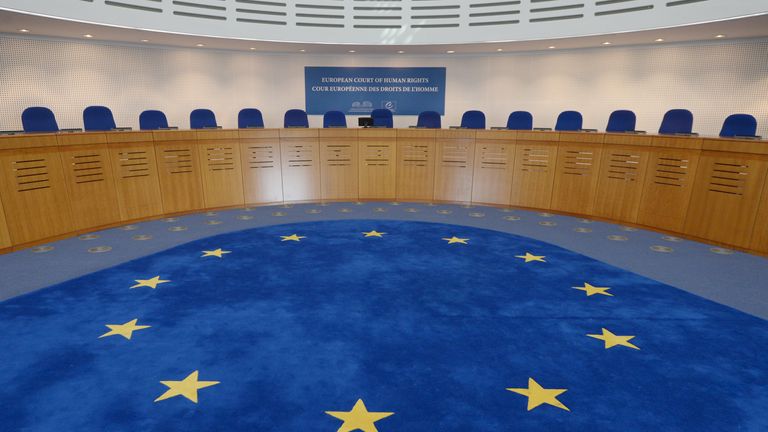
ILGA-Europe and the AIRE Centre welcome the judgement from the European Court of Human Rights in the case of Bazhenov and others v. Russia
Last week, in the case of Bazhenov and others v Russia, the European Court of Human Rights found a violation of Article 8 (right to private and family life) together with Article 14 (prohibition of discrimination) ECHR.
The applicants in this case are a lawyer who provided assistance in a number of high-profile criminal cases related to hate crimes against individuals, and a same-sex couple. The case concerns the disclosure of the applicants’ personal data, including their names, addresses and information about their sexual orientation, on openly homophobic public pages on social networks.
The applicants argued that this exposed them to elevated risks of harassment and made them fear for their lives and health, for the safety of their relatives and employees and for their professional activities. As such, they complained that the national authorities failed in their obligation to ensure effective respect for their private lives (Article 8 ECHR) and protect them from discrimination (Article 14 ECHR). They also complained under Article 13 ECHR that they had no effective remedy as the authorities failed to open a criminal case and conduct an effective investigation to respond adequately to those homophobic incidents.
Sharing of personal information should be a personal choice
ILGA-Europe together with the AIRE Centre submitted a third-party intervention in this case, stating that the sharing of personal information, including sexual orientation, should be an individual’s choice and that there should be safeguards to prevent the disclosure of such personal data. Moreover, national authorities have a positive obligation to conduct an effective investigation into an alleged interference with an individual’s private life, and a person’s sexual orientation should form part of the authorities’ considerations. Finally, we provided an analysis of the risks of discrimination, convictions by authorities and hate crimes that LGBTI individuals face through the non-consensual sharing of information and personal data.
The Court found that the authorities had indeed failed to offer adequate protection in respect of the applicants’ private lives and to protect them from discrimination. Importantly, the Court considered that “the domestic authorities were confronted with prima facie indications that the (…) disclosure of the applicant’s private data without their consent, including information about their sexual orientation, were driven by discriminatory attitudes against LGBTI community”. The Court found that this required an “effective investigation capable of elucidating the homophobic motive behind the breach of the applicants’ privacy and of identifying and, if appropriate, adequately punishing those responsible”.
A particularly vulnerable group, needing heightened protection
Furthermore, the Court recalled that “gender and sexual minorities require special protection from hateful and discriminatory speech because of the marginalisation and victimisation to which they have historically been, and continue to be, subjected.” It noted in this respect that the Russian LGBTI community can be regarded as a particularly vulnerable group, needing heightened protection from stigmatising statements.
Therefore, the Court ruled that domestic authorities had failed to discharge their positive obligation to respond adequately to the non-consensual dissemination of the applicants’ private data, including the information on their sexual orientation, by private individuals, and to investigate in an effective manner whether the dissemination of the data in question had been motivated by homophobic attitudes.
Welcoming the judgement, ILGA-Europe’s Senior Strategic Litigation Officer, Marie-Hélène Ludwig said: “This is a strong judgment in which the Court makes clear that States have a positive obligation to ensure respect for the right to private life, even when this concerns relationships between individuals. We welcome the Court’s observation that preventing and investigating the non-consensual dissemination of private data on one’s sexual orientation is particularly important in view of the vulnerability and risks faced by the LGBTI community in Russia at the moment.”
Last week, the Court also found violations of Article 8 (right to respect for private and family life) and Article 10 (freedom of expression) ECHR in the case of Klimova and Others v. Russia. The case concerned the applicants’ convictions for an administrative offence and/or the blocking of access to their websites or webpages on social networking sites, including one of the oldest and largest LGBTI websites in Russia, for “promoting homosexuality among minors”. The Court concluded that there was an interference with the applicants’ right to freedom of expression. One of the applicants also complained that the security services collected user data related to her personal social networking account and to the social networking community administered by her. The Court found that this amounted to an interference with the applicant’s right to respect for her private life.
Joint statement on today’s long-awaited judgment from the European Court of Human Rights on violations of LGBTI human rights in Armenia

ILGA-Europe and TGEU celebrate the judgement of the European Court of Human Rights in the case of Minasyan and Others v. Armenia, upholding the rights of victims of homophobic and transphobic hate speech.
Today, the European Court of Human Rights issued a judgement in the case of Minasyan and Others v. Armenia. The case was brought forward by 14 Armenian human rights defenders and activists who supported and/or belonged to the LGBTI community and were victims of homophobic and transphobic hate speech. The Court found a violation of Article 8 of the European Convention on Human Rights (right to private and family life), taken alone and in conjunction with Article 14 of the Convention (prohibition of discrimination).
The case concerns the publication of newspaper articles in 2014 that contained discriminatory language and incitement to discrimination against the applicants due to their association with the LGBTI community and/or their perceived sexual orientation or gender identity, and which included links to the applicants’ social media profiles. The article followed the applicants’ comments challenging Armenian Eurovision Song Contest jury members’ statements criticising the winner that year, Conchita Wurst. The applicants instituted civil proceedings against the newspaper but the Armenian courts dismissed the case and ignored the allegations of discrimination based on actual or perceived sexual orientation and gender identity.
The European Court ruled that the publications in question propagated hatred, hostility and discrimination against a minority, the LGBTI community, which was one of the main targets of widespread hostility, hate speech and hate-motivated violence in the country. It also confirmed that the publications were meant to incite intolerance and hostility against the applicants, with the clear intention of intimidating them and causing them real harm. The Court had no doubt that such expressions affected the applicants’ psychological wellbeing, dignity, and reputation and constituted serious attacks on their rights guaranteed by the Convention.
The Court also observed that there was only a civil remedy available to the applicants, and while in theory, such remedy was capable of providing effective protection from homophobic hate speech, it had doubts about its effectiveness in practice. The Court found that the domestic courts failed to balance the competing interests between the journalists’ right to freedom of expression and the applicants’ right to respect for their private life. As a result, the Court found that the domestic courts failed to recognise the authors’ hostile tone and intentions and the impact that his statements had on the applicants’ Article 8 rights. The Court ruled that by doing so, the domestic courts failed to protect the applicants against hate speech and to address the discriminatory nature of the hateful statements.
ILGA-Europe and TGEU jointly filed a third-party intervention in this case submitting that
- homophobic and transphobic statements constitute hate speech that violates Convention rights due to their humiliating and stigmatising effect;
- States have a positive obligation under the Convention to protect against hate speech on the basis of sexual orientation and gender identity
- and that LGBTI persons and affiliates in Armenia are prevented from seeking redress against hate speech and continuously struggle to enjoy equality due to the lack of adequate legal framework and the hostile attitudes against the LGBTI community.
According to Hasmik Petrosyan, Lawyer at Pink Armenia: “This is already the second judgement by the ECtHR which states that Armenia has failed to provide effective protection for LGBT people against hate speech. Since the judgement on the case Oganezova v. Armenia, for two and a half years, the State could not provide evidence that the Criminal Code article on liability for public calls to violence is being effectively applied in practice. At the same time, the Government has been discussing the anti-discrimination law for almost ten years and the draft still lacks effective mechanisms to protect LGBT people. Pink Armenia will be engaged in the monitoring of the implementation of the judgment.”
TGEU’s Senior EECA Programme Officer, Daniyar Orsekov, said: “TGEU welcomes the judgement of the European Court of Human Rights on Armenia where trans people have little to no legal protections. At a time when anti-LGBTI sentiment is being enshrined in law and therefore further legitimised in the Caucasus, this judgement sets an important legal precedent that can inspire activists to pursue justice and encourage courts in Armenia and the region to uphold the rights of LGBTI communities. In environments where hate speech is allowed to flourish, acts of hate-fuelled violence are not far behind. We call on the Armenian authorities to recognise homophobic and transphobic speech as hate speech and protect LGBTI communities.”
ILGA-Europe’s Senior Strategic Litigation Officer, Marie-Hélène Ludwig, added: “This is a long-awaited judgment that makes clear that States should provide effective protection against homophobic and transphobic hate speech not to foster impunity. We trust that Armenian authorities will put in place the necessary legislative measures to explicitly prohibit discrimination on the grounds of sexual orientation and gender identity and bias-motivated crimes to prevent similar cases from taking place in the future.”
Read Pink Armenia’s full statement on the judgement here: https://pinkarmenia.org/en/news-events/echr-blacklist/
Russia failed to respond adequately to politician’s homophobic verbal assault, European Court finds

The European Court of Human Rights has found that Russia’s failure to respond adequately to homophobic verbal assault and physical threats by a politician against LGBTI activists is in breach of their human rights.
Last week, in case Yevstifeyev and others v. Russia, lodged by victims of homophobic hate speech in Russia, the European Court of Human Rights found a violation of Article 8 of the European Convention on Human Rights (right to private and family life), together with Article 14 (prohibition of discrimination).
The applicants are LGBTI rights activists who participated as part of the LGBTI column in a rally against hatred in St Petersburg where they had to face homophobic insults and physical threats from a well-known politician and member of the St Petersburg Legislative Assembly, who attended the rally. He also spread false information concerning the applicants.
The applicants lodged criminal complaints but the authorities refused to register them, claiming the politician had allegedly merely expressed his personal opinion about the LGBTI community. The applicants also lodged an administrative offence complaint and a civil complaint, which were dismissed on the grounds that the statements did not amount to insult, as they were not directed against specifically named individuals.
The Court first confirmed that the applicants had been directly targeted by the verbal assault and that the statements at issue affected their psychological well-being and dignity, and therefore fell within the sphere of their private life.
As to the authorities’ refusal to register the criminal complaints, the Court found that the domestic authorities had failed to strike a fair balance between the applicants’ rights to respect for their private life and to be protected from discrimination on the ground of sexual orientation on one hand, and the public interest in protecting freedom of expression on the other hand.
Turning to the administrative complaint, the Court found that the domestic authorities did not provide relevant and sufficient reasons for dismissing the administrative complaints. Lastly, as regards the civil proceedings, the Court ruled that, by finding that the applicants were not affected by the contested statement, the civil courts had failed to acknowledge the applicants’ rights to respect for their private life and to protection from discrimination on the ground of sexual orientation. The Court made clear that, contrary to the civil courts’ rulings, the politician’s statements could not be construed in a neutral way and were openly homophobic, had been particularly aggressive and hostile in tone, and included physical threats against the participants in the rally.
As a result, the Court concluded that the domestic authorities failed to comply with their positive obligation to respond adequately to the verbal assault and physical threats motivated by homophobia directed against the applicants. It recalled its previous ruling that “failure to address such incidents can normalise hostility towards LGBTI individuals, perpetuate a culture of intolerance and discrimination and encourage further acts of a similar nature.” The judgment can be accessed here.
Joint statement: Welcoming European Court judgement on Poland’s failure to protect same-sex couples married abroad

The European Court of Human Rights has found that Poland breached the right to respect for the family life of two same-sex Polish couples married abroad by failing to recognise their relationships.
ILGA-Europe, the International Federation for Human Rights (FIDH), the Network of European LGBTIQ* Families Associations (NELFA), and the European Commission on Sexual Orientation Law (ECSOL) jointly welcome a ruling released today in the case of Formela and others v. Poland, in which the European Court of Human Rights (ECtHR) found that Poland violated Article 8 (the right to respect for private and family life) of the European Convention on Human Rights.
The case concerned two same-sex Polish couples who married respectively in the UK and in Denmark, and requested Polish authorities to register their marriages contracted abroad. The authorities dismissed the requests, finding that registering their marriage would be contrary to the Polish legal order which allowed only marriage between different-sex couples. This failure resulted in the applicants’ inability to regulate fundamental aspects of their daily lives: they were prevented from taking leave to care for their ill partner; could not extend health insurance to cover their partner; were treated as being unrelated in the field of taxation and could not benefit from an exemption from donation tax granted to next-of-kin or from the right to submit a joint tax declaration.
The Court decided that “by refusing to register the applicants’ marriages under any form and failing to ensure that they have a specific legal framework providing for recognition and protection, the Polish authorities have left them in a legal vacuum and have not provided for the core needs of recognition and protection of same-sex couples in a stable and committed relationship.” The Court added that none of the public interest grounds put forward by the Polish authorities could prevail over the applicants’ interest in having their respective relationships adequately recognised and protected by law.
The Court referred to its landmark judgement of December 2023 in Przybyszewska and others v. Poland finding that Poland had breached Article 8 of the Convention as it had failed to comply with its positive obligation to ensure that same-sex couples had a specific legal framework providing for the recognition and protection of their unions.
Poland is also bound by the 2018 Court of Justice of the European Union Coman landmark ruling requiring EU Member States to treat same-sex couples in the same way as different-sex couples when they exercise freedom of movement rights in the EU.
On 27 December 2023, Poland’s Prime Minister, Donald Tusk, announced that a bill to legalise same-sex unions would be introduced and debated in early 2024. This bill was added to the government’s agenda on 8 July 2024.
Annamaria Linczowska, Advocacy and Litigation Officer at Campaign Against Homophobia (KPH) in Poland said: “Today’s verdict shows once again that through lack of legal protection and recognition of same-sex couples, Poland does not meet the Council of Europe standards of human rights protection. Poland should no longer be one of the few CoE Member States that do not provide recognition for same-sex couples. This judgement is an important argument for implementation of civil unions and marriage equality in Poland. To provide a wide protection of human rights, Poland can not forget about same-sex couples and their safety.”
Read KPH’s press release here.
According to Milena Adamczewska-Stachura, who represents the Love Does Not Exclude Association, involved in the fight towards marriage equality in Poland: “Today’s rulings are a wake-up call for the Polish government, reminding it that the unchanging, complete lack of protection for same-sex couples violates the European Convention on Human Rights. Today’s judgement is an important tool for legal practitioners who fight in the courts for transcription of foreign marriage certificates, and a small but important step towards equality.”
ILGA-Europe, FIDH, NELFA and ECSOL submitted a joint intervention in the case.
According to Senior Strategic Litigation Officer at ILGA-Europe, Marie-Hélène Ludwig: “Today’s judgement is another important step towards due recognition and protection of same-sex couples in Poland, whether they are married abroad or wish to legalise their unions in Poland. It is however unfortunate that the Court considered once again that it was unnecessary to examine the applicants’ complaint under Article 14 of the Convention (non-discrimination).”
Daniel Martinović, President of NELFA, said: “We welcome today’s judgement as a powerful affirmation of the rights of same-sex couples in Poland and beyond. This ruling should serve as a beacon of hope and strength for all queer families, inspiring us to continue striving for a more inclusive and secure future where our relationships are recognised, respected, and protected.”
Helmut Graupner, Co-Coordinator of ECSOL, pointed out that “this is the second time Europe’s highest human rights court made clear that Poland is violating the European Convention of Human Rights by refusing same-gender couples formal recognition of their partnership. It should cause Poland to speedily meet European minimum human rights standards. If not going beyond them, as it had done by completely decriminalising homosexuality as early as 1932 when many other European countries like Great Britain, Germany, Austria, Switzerland, Czechoslovakia, Hungary, Norway and Finland still had a criminal total ban on consensual homosexual relations between adults.”
“Today’s European Court of Human Rights’ ruling sends a strong message to Poland and all Council of Europe member states that they must urgently address the persistent discrimination against same-sex couples and grant them equal rights with heterosexual couples’ concluded Elena Crespi, Head of the Europe Programme at FIDH. “The judgement also offers the Polish government a chance to demonstrate its commitment to implementing European court rulings, as part of its efforts to restore the rule of law and align Poland with international standards’.
Latvia failed to protect human rights of victim of a homophobic attack, european Court finds

The European Court of Human rights has made a judgement in a case where the Latvian authorities declined to prosecute an anti-LGBTI attack as a hate-motivated offence
Earlier this month, in the case of Hanovs v. Latvia taken by the victim of a homophobic assault, the European Court found a violation of Article 3 of the European Convention on Human Rights (prohibition of torture and inhuman or degrading treatment) and Article 8 (right to private and family life), together with Article 14 (prohibition of discrimination).
The case concerned the attack on the applicant and his partner, a gay couple, when they were walking in Riga. The two perpetrators of the attack shouted homophobic slurs and physically assaulted the applicant. The applicant avoided further violence by fleeing into a shop and securing the door. The police and prosecutors declined to prosecute the attack on the applicant as a hate-motivated offence.
The Court found that the authorities had failed to offer adequate protection in respect of the individual applicant’s dignity and private life by ensuring effective prosecution of the attack against him, and to effectively investigate the hate motive behind the attack.
Importantly, the Court considered that “attacks on LGBTI individuals, triggered by expressions of affection constitute an affront to human dignity” so that the attack “not only undermine[d] the victims’ physical safety but also their emotional and psychological well-being, turning a moment of intimacy into one of fear and trauma.”
Furthermore, the Court ruled that such attacks “humiliate and debase the victims, conveying a message of inferiority of their identities and expressions.” As such, the case fell within the scope of Article 3 of the Convention (inhumane and degrading treatment).
The Court also pointed out the crucial importance of addressing impunity in cases of hate crimes as “failure to address such incidents can normalise hostility towards LGBTI individuals, perpetuate a culture of intolerance and discrimination and encourage further acts of a similar nature.”
Welcoming the judgement, ILGA-Europe’s Senior Strategic Litigation Officer, Marie-Hélène Ludwig said: “This judgment sends a strong signal in recalling State’s positive obligations in effectively addressing hate crimes against LGBTI people in Latvia and across Council of Europe member States amidst the rise in hate incidents in a number of countries.”
The judgment can be accessed here.
Joint Statement: Human rights groups regret outcome of European Court ruling on France’s criminalisation policies in relation to sex work

On 25 July, the European Court of Human Rights (ECtHR) ruled in M.A. and Others v. France that there has been no violation of Article 8 of the European Convention on Human Rights.
In December 2019, more than 250 sex workers took their case to the European Court of Human Rights to challenge whether the criminalisation of clients was compatible with their fundamental rights: the freedom to pursue a professional activity, the right to personal autonomy and sexual freedom, and the rights to physical integrity and life.
With its ruling that there had been no violation of Article 8, the court refused to affirm the human rights of sex workers.
The Court nonetheless stated that national authorities have a duty to keep the approach they decided to adopt under constant supervision, especially when the approach was based on a general and absolute prohibition of the purchase of sexual acts. This, the Court said, is to ensure that the approach can be amended depending on the evolution of international standards and European society in this field, and the consequences of the implementation of this legislation.
With this joint statement, our organisations express our deep solidarity with the 261 sex workers, most of them migrants of different genders, who, despite their precarious situation, had the courage to unite and challenge the French state to oppose a law that puts their safety and health at risk.
Our organisations are leading civil society networks and human rights organisations. We have decades of experience and expertise in addressing women’s rights and gender equality, human rights, sexual and reproductive health and rights, HIV, harm reduction, the rights of LGBTI people, digital rights, human trafficking, migration, racial justice and criminal justice. All ten organisations have come to the same conclusion: the criminalisation of the purchase of sex or of any other aspect of sex work does not protect sex workers’rights. It also fails to address the root causes of the very serious issue of trafficking and forced labour. From our expertise we know that the overuse of criminal laws to solve societal problems actually harms those most vulnerable in our societies.
Criminalisation policies hinder meaningful inclusion and consultation with sex workers and reinforce social stigma. Labelling all sex workers as victims is patronising and adds to the barriers to accessing community-led health and violence prevention programmes.
We are appalled by the fact that such policies are promoted and celebrated by some so-called feminist organisations. Carceral feminism, which sees criminal law as a tool for achieving gender equality, harms those who are most marginalised in our society and disproportionately impacted by racial profiling, police brutality and over-surveillance.
We are deeply disappointed by this decision of the European Court of Human Rights. Regardless of this judgement, our organisations stand in solidarity with sex workers and will continue to advocate for the full decriminalisation of sex work.
It is only by adopting a human rights-based approach, decriminalising all aspects of sex work, and meaningfully including sex workers and sex workers’ human rights defenders in decision-making, that people selling sex, as well as victims of sexual exploitation, can be protected and theviolations of their rights can be addressed.
Signatories:
Equinox Initiative for Racial Justice
ILGA-Europe
European Sex Workers Rights Alliance (ESWA)
Global Alliance Against Traffic in Women
AIDS Action Europe
Trans Europe and Central Asia (TGEU)
IGLYO
La Strada International
PICUM
European AIDS Treatment Group
Trans woman should have been allowed access to hormone therapy in prison, says European Court

The European Court of Human Rights has found that Poland violated Article 8 of the European Convention on Human Rights, protecting the right to private and family life, when a trans woman was denied access to hormone therapy in prison
On July 11, the European Court of Human Rights (ECHR) passed judgement in a case concerning the refusal by Polish authorities to allow a trans woman to continue hormone replacement therapy in prison, although she had already undergone such therapy for nearly one and a half years in two previous prisons.
The Court found that the authorities had failed to justify their refusal on any reasonable grounds, and did not provide sufficient explanations as to why the treatment might have been detrimental to the applicant’s health.
To the contrary, the Court pointed out that hormone replacement therapy had beneficial effects for the applicant’s physical and mental health and that the prescribing doctors had considered it necessary and urgent for the applicant to access such care. As such, the Court concluded that the Polish authorities had failed to strike a fair balance between the competing interests at stake, especially in light of the need to protect the applicant’s health as well as her interest in continuing hormone replacement therapy.
Transgender Europe (TGEU) intervened on this case. The judgement can be downloaded here.
Joint Statement welcoming European Court ruling that Russia’s trans parent’s foster-care termination violates family rights
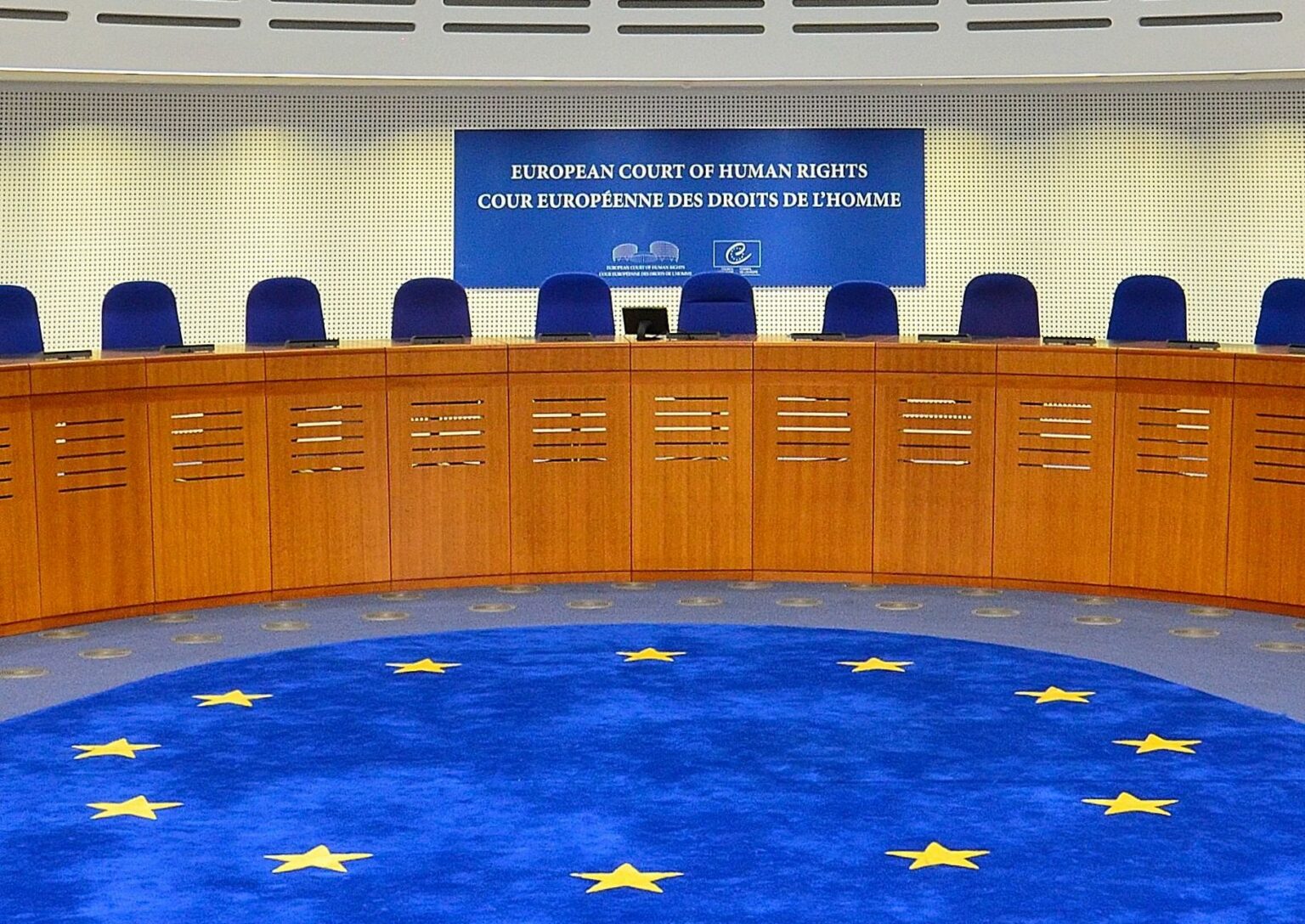
In a judgement published yesterday, the European Court of Human Rights found that Russia violated the right to private and family life of a trans man and his two foster children by terminating the foster care agreement on grounds of the man’s transition.
TGEU, ILGA-Europe, and the Irish Council for Civil Liberties, on behalf of nine fellow members of the International Network of Civil Liberties Organizations (INCLO)*, express relief over this decision. However, we regret that the Court failed to examine and rule on an apparent discriminatory motive.
The case concerned a Russian transgender man whose two foster children were removed from his home on account of his gender identity and transition.
Violation of the rights to private and family life
The European Court of Human Rights addressed issues under Article 8 regarding family life. The case involved the termination of custody and a foster care agreement of a trans man (and his husband) caring for two children, due to his diagnosis of “transsexualism” and change of gender identity. The Russian authorities primarily based their decision on the fact that under Russian law it is impossible for same-sex couples to be foster parents. Also, they cited societal traditions and mentality for the interference. The European Court however criticised that the overall family situation was not examined in full, nor were the conclusions of investigating authorities considered.
The Court criticised the lack of an individualised expert examination or scientific study on the impact of gender identity changes on children’s psychological health and development. Additionally, the assessment was not balanced or reasonable regarding the competing interests involved. The Court also concluded that under Article 34 ECHR, the applicant had standing to represent the children’s interests because, at the time the application was filed, social services that were meant to be safeguarding the children’s interests were responsible for the wrongful actions in the first place. The Russian government denied this.
A question of discrimination?
The applicant also alleged a violation of his right to non-discrimination, as protected by Article 14 ECHR. Unfortunately, the Court did not consider it necessary to explore this argument and concluded that the finding of a violation of Article 8 ECHR was sufficient. However, Russian authorities terminated the applicant’s custody exclusively on account of the gender identity of the trans man and his decision to transition, as chamber member Judge Serghides rightly pointed out in a partly dissenting opinion to the judgement. Therefore, it is incomprehensible why the complaint under Article 14 ECHR (non-discrimination) combined with Article 8 ECHR was not fully investigated. This is a missed opportunity to develop jurisprudence on Article 14.
TGEU, ILGA-Europe, and TLDP as well as the Irish Council for Civil Liberties, on behalf of 10 INCLO members, have respectively submitted comments in the case at the time.
What this means for trans foster parents and their families
Russia left the Council of Europe on 16 September 2022. Therefore, the country is no longer bound by the European Convention on Human Rights. However, cases that were pending at that point are still heard by the European Court of Human Rights.
Technically, Russia is still bound to implement cases that are dated before Russia left the Council of Europe. However, in practice it is highly unlikely that trans people in Russia will benefit from the judgement as Russian authorities tend to ignore judgements from the ECtHR, even more so if they relate to LGBTI people.
However, since the judgement is also relevant for the remaining member states, trans foster parents and their families in 46 States of Europe can refer to this judgement.
*The endorsing INCLO members are: American Civil Liberties Union (ACLU); Canadian Civil Liberties Association (CCLA); Centro de Estudios Legales y Sociales (CELS); Centro de Estudios de Derecho, Justicia y Sociedad (Dejusticia); Human Rights Law Network (HRLN); Hungarian Civil Liberties Union (HCLU); Irish Council for Civil Liberties (ICCL); Kenya Human Rights Commission (KHRC); KontraS (Commission for the Disappeared and Victims of Violence); Legal Resources Centre (LRC).
More info
Joint Statement: European Court confirms requirement for legal gender recognition in Bulgaria despite rejected complaint

TGEU, ILGA-Europe, Bilitis, and the Bulgarian Helsinki Committee welcome the European Court of Human Rights’ confirmation of Bulgaria’s obligation to provide for reliable legal gender recognition. However, we regret that the Court found the individual complaint to be inadmissible.
On 4 July 2024, the Court published its decision on the revision of the Y.T. v Bulgaria case, which was originally decided in 2020. While the Court concluded that the applicant had failed to inform the Court at the time of his success in obtaining legal gender recognition from another Bulgarian court and therefore retroactively found the case to be inadmissible, it still emphasised that Bulgaria is obliged to set up a robust legal framework for legal gender recognition (LGR), as confirmed in the later case of P.H. v Bulgaria (2022).
It is important to point out that the applicant had followed the rules and exhausted all domestic remedies in one set of proceedings and he was unable to obtain LGR. Considering the importance of having his identity documents match his gender identity, in the circumstances where timely remedy from the Court was not clear, the applicant then resorted to seeking LGR through other courts. While the applicant eventually successfully achieved LGR, the overall process proved that there is a lack of a quick, transparent and accessible procedure in Bulgaria.
The Court also indirectly criticised a decision from the Bulgarian Supreme Court of Cassation that effectively bans legal gender recognition for anyone in the country.
Member of the jury, Judge Šimáčková issued a remarkable dissenting opinion. She focused on both the human impact on the individual and the systemic failings of the Bulgarian government to remedy the situation.
TGEU, ILGA-Europe, Bilitis, and the Bulgarian Helsinki Committee jointly intervened in the case at the time and informed Council of Europe supervision authorities of the systemic failure of Bulgarian authorities to provide for legal gender recognition.
Our organisations express deep concern over Bulgarian authorities’ priorities. Instead of addressing the underlying human rights violations, the government decided to invest in having this judgement overturned. This does not change the situation at hand and does not relieve Bulgaria from its obligation to rectify it.
The situation for trans people seeking LGR in Bulgaria is dire. 94% of trans respondents from Bulgaria said they had not changed their legal gender. Whereas, 26% would like to do so in the future. 39% said that changing legal gender was not possible in their country, according to the 3rd FRA LGBTI Survey from 2023.
In 2023, the Council of Europe Committee of Ministers (CoM ), the supervising authority in the case, expressed deep regret over the lack of action by the Bulgarian authorities to rapidly elaborate legislative amendments introducing a Convention-compliant procedure for legal gender recognition. Taking into account the gravity of the situation and the uncertainty faced by trans people in Bulgaria who want to obtain LGR, the CoM exceptionally requested Bulgarian authorities to consider the possibility of adopting interim measures to allow legal gender recognition.
Background
In the original case, Y.T., a trans man from Bulgaria, had challenged the inability to change his name and gender marker in Bulgaria before the Court in 2016 as a violation of his convention rights. In 2020, the ECtHR found that Bulgaria breached the applicant’s right to private life, as protected under Article 8 ECHR, and confirmed that there is no system in Bulgaria in place for adapting documents corresponding to CoE standards (quick, transparent, accessible).
Y.T. is a “leading case” as it pointed out a systematic problem. In another “repetitive” case, P.H. v Bulgaria, the Court confirmed its findings from Y.T.
In December 2023, the Bulgarian government requested a revision of the Y.T. case as the applicant had been able to receive legal gender recognition before another Bulgarian court while the European Court of Human Rights deliberated on the case.
Four years after the original decision in Y.T., the Bulgarian government has still not implemented a process that ensures trans people have access to quick, transparent and accessible legal gender recognition procedures.
On the contrary, in February 2023, the Bulgarian Supreme Court of Cassation ruled that legal gender recognition is not possible in the Bulgarian legal framework.
During the implementation process, no visible signs of progress or political will are detectable.
The dissenting opinion
In her remarkable dissenting opinion, Judge Šimáčková, empathises with the human cost and the systemic adverse situation for trans people in Bulgaria. She critiques an over-formalistic and rigorous assessment by her fellow judges. She points out that the applicant was in a very distressing situation and fought not only for himself but for others in a similar situation in the country. Moreover, the applicant should not have been punished for formalistic reasons that the responsible legal representative should have known. She suggests that the Court could have instead reduced the compensation awarded to the individual and reviewed the relevant legal framework, which had at first been patchy and since 2022 completely inhibiting legal gender recognition.
More info
Find out more about the original case: https://tgeu.org/third-party-intervention-in-y-t-v-bulgaria-case/
2024 Decision in Revision in Y.T. v Bulgaria: https://hudoc.echr.coe.int/?i=001-234521
2020 Original decision in Y.T. v Bulgaria (french only): Y.T. c. BULGARIE (coe.int)
Joint submission in the implementation process of Y.T. v Bulgaria: https://hudoc.exec.coe.int/?i=DH-DD(2023)1015E
Learn about the situation of trans people in Bulgaria here and here
Joint statement in support of South African athlete Caster Semenya

ILGA-Europe, The International Commission of Jurists and the organisation Intersex International Europe jointly file a third-party intervention before the Grand Chamber of the European Court of Human Rights in a case concerning the South African athlete Caster Semenya
In July 2023, in its judgment in the case of Semenya v. Switzerland, the Chamber of the third section of the European Court of Human Rights (ECtHR) had ruled in favour of Caster Semenya, a South African Olympic runner, finding that Switzerland had violated her right to freedom from discrimination, taken together with her rights to respect for private life and to an effective remedy had been violated.
The case had arisen from a complaint brought to the Strasbourg Court against witzerland by Caster Semenya, a South African international-level athlete specializing in middle-distance races (800 to 3000 metres). She had refused to comply with the “Eligibility Regulations for the Female Classification (Athletes with Differences of Sex Development – the DSD Regulations)” of the International Association of Athletics Federations (IAAF, now World Athletics), requiring her to reduce her natural testosterone level through hormone treatment in order to be allowed to participate in international competitions in the women’s category, since the side-effects of such treatment were not well understood. Her failure to comply with the DSD Regulations resulted in her being barred from participation in international competitions.
Notwithstanding the July 2023 ECtHR judgment, Semenya and many other women athletes continue to be banned from competing in sports under World Athletics regulations. Later that year, the Swiss government filed a referral request to the Grand Chamber of the ECtHR for a final ruling on Semenya’s case. A hearing in the case will take place in Strasbourg on 15 May 2024.
Kaajal Ramjathan-Keogh, Director of ICJ’s Africa Programme, said, “The Grand Chamber of the ECtHR will have the opportunity to consider Semenya’s complaint of human rights violations and the broader question of discrimination against athletes with hyperandrogenism, a condition characterized by higher than usual levels of testosterone, a hormone that increases muscle mass and strength. Under World Athletics regulations women like Semenya, who have naturally occurring higher testosterone levels associated with Differences of Sex Development (DSD), are barred from competing – unless they subject themselves to medically unnecessary interventions to reduce their testosterone levels and conform to an arbitrary and subjective standard of femininity.”
Organisation Intersex International Europe (OII Europe), ILGA-Europe (the European Region of the International Lesbian, Gay, Bisexual, Trans and Intersex Association) and the International Commission of Jurists (ICJ) filed a joint submission before the Grand Chamber of the European Court of Human Rights to assist the Grand Chamber in its determination of the case. The joint submission focuses on the place of intersex athletes in competitive sports and sporting fairness for all athletes. The submission analyses World Athletics’ constantly evolving rules, which – due to their strict prerequisites – effectively limit and/or prevent the participation of intersex athletes in international sporting competitions. Even though new regulations were issued in 2021 and again in 2023, the submission deals in chief with the 2018 regulations as these are the ones being contested before the Court.
The submission focuses on the following issues:
• The DSD Regulations discriminate against intersex athletes on the grounds of sex within the meaning of Article 14 of the European Convention of Human Rights (ECHR), as well as on the grounds of sex characteristics – in particular, genetic characteristics – which, in turn, fall within the protective scope of the same provision. The joint interveners have provided the Grand Chamber with a comparison between the 10 December 2021 Regulations, 31 March 2023 Regulations, and the 2018 Regulations to show that World Athletics is continually restricting access to sport for intersex and other athletes without “particularly weighty and convincing reasons” by way of justification.
• The 2018 DSD Regulations were less restrictive than the subsequently issued rules as they only limited participation in the following races: 400m races; 400m hurdles races; 800m races; 1500m races; one-mile races; and all other Track Events over distances between 400m and one mile, whether run alone or as part of a relay event or a Combined Event. The 2018 Regulations were nevertheless discriminatory to intersex athletes.
• The submission expands on the wider detrimental effect of the DSD Regulations on the human rights of youth, children and intersex athletes.
• The submission makes brief remarks on the right of access to justice and the right to an effective remedy under international law and standards, including Articles 6 and 13 of the European Convention on Human Rights.
Dan Christian Ghattas, Executive Director of OII Europe, said, “The submission sets out that the 2018 DSD Regulations fall foul on sex characteristics as a ground for discrimination without ‘particularly weighty and convincing reasons’ by way of justification and, as a result, impermissibly discriminate against intersex athletes under Article 14 of the European Convention on Human Rights. In particular, the joint submission underscores the significance of the findings in the Chamber judgment establishing sex characteristics as a prohibited ground under Article 14 of the Convention.”
According to Katrin Hugendubel, Advocacy Director at ILGA-Europe, “Despite claims from the World Athletics that the DSD Regulations will not prevent any women from competing in athletics, they have the effect of forcing some women with variations of sex characteristics to choose between undergoing medically unnecessary interventions to lower their testosterone levels or be precluded from participating in international sport. This is yet another example of discrimination faced by intersex athletes who are exposed to invasive medical examinations and interventions that have a dramatic impact on their ability to participate in competitions, and which may have life-long physical and psychological consequences.”
Background to the case
The 2019 regulations are the ones that are in question in the case, despite regulations also being issued in 2021 and 2023. Sports governing bodies argued that the 2019 regulations broke from the past 50 years of sex testing women athletes, a practice that was humiliating, degrading and discriminatory. However, the revised 2019 regulations still subjected women athletes to sex eligibility criteria that retain these negative, rights-abusing consequences.
Semenya unsuccessfully challenged the 2018 regulations in the Court of Arbitration for Sport based in Lausanne in April 2019. She then appealed to Switzerland’s highest court, the Federal Tribunal, which dismissed the case on grounds that sports regulations violating women’s rights cannot be struck down as inconsistent with Swiss public policy. They added that the DSD regulations were an appropriate, necessary, and proportionate means of achieving the legitimate aims of fairness in sport.
In its July 2023 judgment, the third section of the ECtHR found that Semenya had not been afforded sufficient institutional and procedural safeguards in Switzerland to allow her to have her complaints examined effectively, especially since her complaints concerned substantiated and credible claims of discrimination as a result of her increased testosterone level caused by differences of sex development (DSD). It followed, particularly with regard to the high personal stakes involved for Semenya – namely, participating in athletics competitions at the international level, and therefore practising her profession – that Switzerland had overstepped the narrow margin of appreciation afforded to it in the present case, which concerned discrimination on the grounds of sex and sexual characteristics requiring “very weighty reasons” by way of justification. The high stakes of the case for Semenya and the narrow margin of appreciation afforded to Switzerland should have led to a thorough institutional and procedural review, but Semenya had not been able to obtain such a review. The Court also found that the domestic remedies available to the applicant could not be considered effective in the circumstances of the case.
The 2018 DSD Regulations require a blood testosterone level below five nmol/L for a continuous period of at least six months. The 2023 DSD Regulations, in turn, impose an even lower threshold with respect to the concentration of testosterone in the serum of relevant athletes, namely, below two point five nmo/L. In comparison with the 2018 DSD Regulations, the 2023 DSD Regulations betray an even more misogynistic nature and are a fortiori discriminatory to athletes with variations of sex characteristics. Moreover, the 2023 DSD Regulations’ restricted testosterone level does not just affect intersex persons, but also endosex (i.e., non-intersex) women in general.
In November 2023, Switzerland successfully requested a referral of the case to the Grand Chamber of the ECtHR on the grounds inter alia that Switzerland lacked jurisdiction; that the case did not involve the application of Swiss law; that the Chamber’s ruling would require a fairly fundamental review of the system of judicial review of international arbitral awards requiring alignment with the judicial review of judgments handed down by national courts and this would run counter to the aims of international arbitration and would significantly reduce the attractiveness of this method of dispute resolution.
Top European Court Strikes Out Case Against Azerbaijan for LGBTI Arrest and Torture
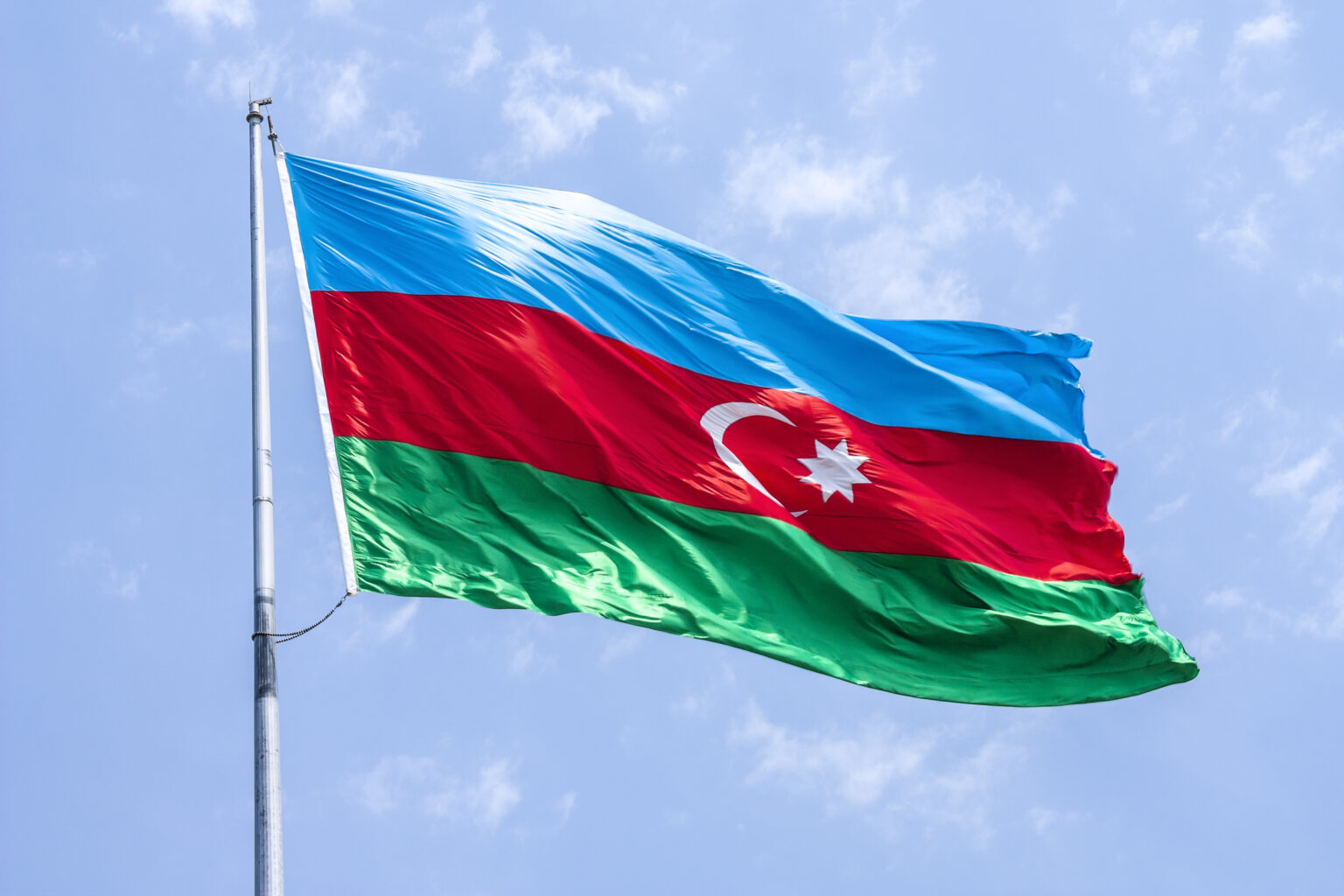
A case against Azerbaijan by a large group OF applicants who were arrested in a wave of anti-LGBTI police raids and forced to undergo medical examinations has been struck out by the European Court of Human Rights
Last week, the European Court of Human Rights decided to strike out A. v Azerbaijan and 23 other applications. The case involved a wave of police raids in Baku in September 2017 that led to the arrest, ill-treatment and forced medical examinations in detention of members of the LGBTI community.
In its decision, the Court considered that it was no longer justified to continue the examination of the applications given the Government’s unilateral declaration made in 2019, according to which it acknowledged that “there was a violation of the applicants’ rights guaranteed in the Convention” and offered to pay compensation to the applicants.
The applicants expressed deep dissatisfaction with this declaration, saying the Government’s acknowledgement lacks specificity regarding the nature and extent of the violations; the Government gave no undertaking for general measures to prevent future violations and there are no necessary provisions under domestic law for holding the perpetrators of those acts of violence accountable. This is particularly problematic as those groups kept being targeted subsequent to the 2017 arrests, in view of their perceived SOGIESC.
According to Leyla Osmanova, a victim of 2017 arrests, “The world saw it, the world knew about it. We were tortured, literally. Even a million dollars cannot cover the cost of psychological trauma, as I continue to live in fear. Although I am in a safe place now, that psychological trauma ruined my life. The court process took a long time, the decision is just a mere decision, the compensation is ridiculous.”
She added: “This event made me long for my native country. I have lost faith not in the country, but in the police and laws there.”
ILGA-Europe together with Civil Rights Defenders and REDRESS had submitted a third-party intervention in the case. Azerbaijan currently sits at the bottom of the ILGA-Europe Rainbow Map, which ranks all 49 European countries on a scale between 0% (gross violations of human rights, discrimination) and 100% (respect of human rights, full equality).
Inventory of relevant SOGIESC case law and pending cases before the ECtHR and CJEU 2024
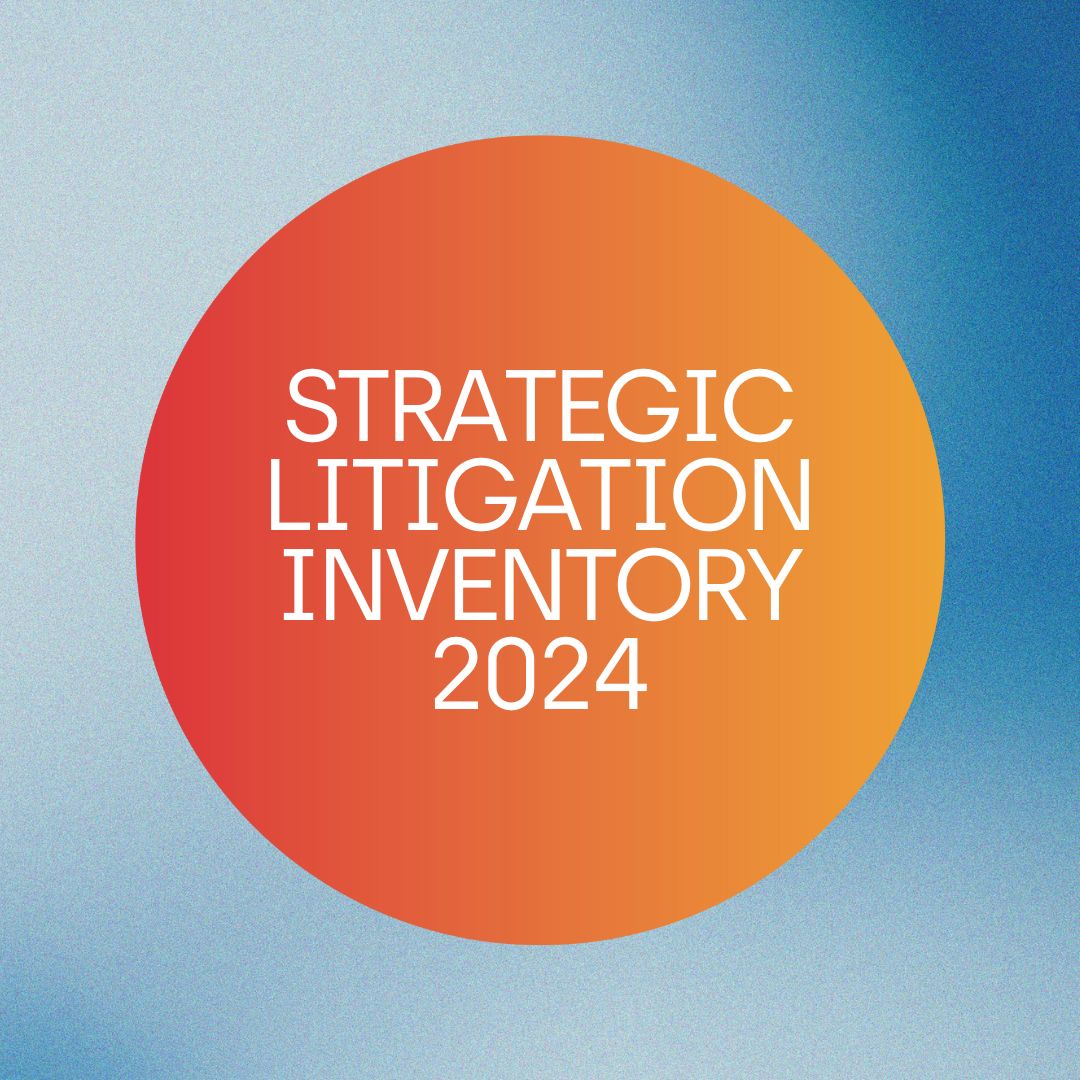
In order to focus our strategic litigation efforts across Europe to fully protect and advance LGBTI rights, with this inventory ILGA-Europe wants to support members and partners across the region to identify trends and gaps in protection at the European level, which can commonly be tackled through litigation. The inventory can further strengthen cooperation and help guide our work and efforts by others in bringing forward and supporting strategic cases.
This inventory and continuous assessment of the European landscape informs ILGA-Europe’s ongoing engagement in strategic litigation through identification and support of strategic opportunities.
This inventory covers relevant SOGIESC cases from 2010 up until December 2023.
Significant European Court judgments in two cases concerning violence against LGBTI people involving state agents
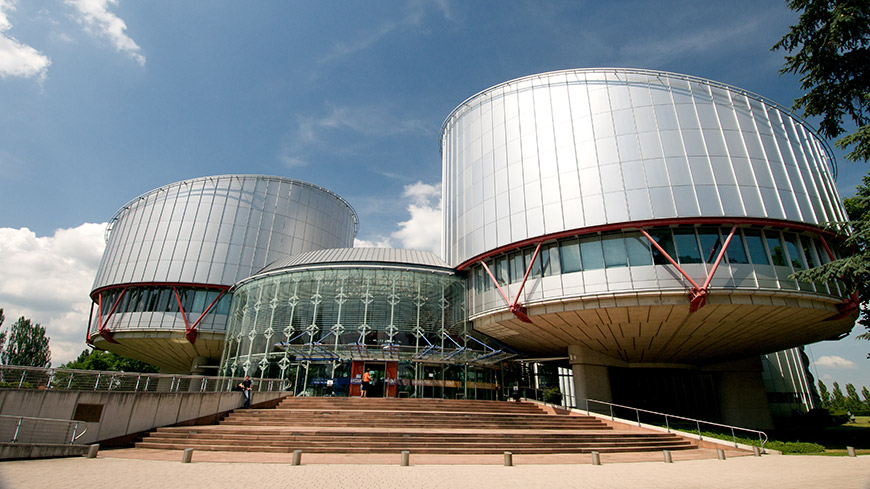
Two successful European Court cases brought against Russia underline state obligations to protect LGBTI community from violent counter demonstrators and general hate motivated violence.
ILGA-Europe welcome yesterday’s judgments from the European Court of Human Rights in Romanov and Others v Russia and Lapunov v Russia. Romanov and Others v Russia concerned Russia’s failure to prevent and protect LGBTI community members from homophobic violence during peaceful demonstrations and ensure effective investigation. The applicant in Lapunov v Russia was one of the victims of the “anti-gay purges” that took place in Chechnya in 2016-2017, having been detained and tortured in March 2017.
According to ILGA-Europe’s Head of Litigation, Arpi Avetisyan, “These cases are of great significance for the recognition of the rights of LGBTI people that have suffered by inaction or actual infliction of violence by state agents.
“Importantly, the Court observed that even when investigations were initiated, the homophobic nature of the attacks was rejected by the authorities, therefore could not be considered as effective.”
The Court found that physical and phycological treatment suffered by Mr Lapunov in Chechnya amounted to discriminatory torture under the European Convention of Human Rights. Furthermore, the authorities failed to carry out effective and meaningful investigation to uncover violence based on sexual orientation, despite all the evidence provided.
Russian LGBTI organisations, who worked to support both cases before the Court, note that although Russia has left the Council of Europe and is not party to the European Convention since March 2016, it is unlikely to implement these judgments. They are however symbolically important for persecuted people in Russia, as they give hope and a sense of support from the international community. It is crucial that state-sponsored homophobia does not go unnoticed.
Avetisyan concluded: “These cases are another affirmation by the Court on Council of Europe member state obligations to protect LGBTI community from violent counter demonstrators and general hate motivated violence, and to ensure timely and effective investigations in such cases.”
Romania failed to protect same-sex couples, European court rules
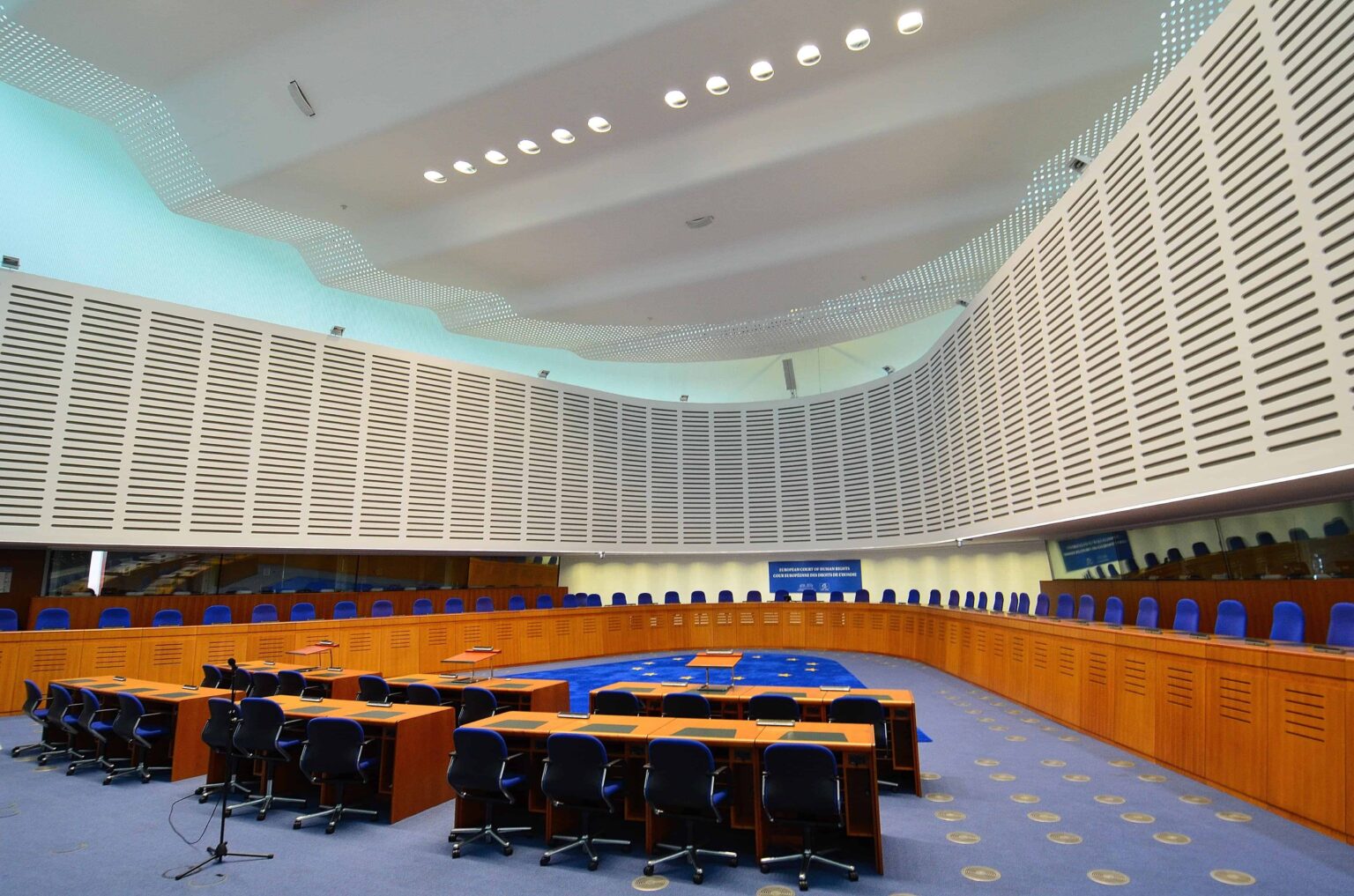
European court has found that Romania breached the right to respect for the family life of 21 same-sex Romanian couples by failing to recognise their relationships.
In a ruling released today, the European Court of Human Rights (ECHR) found that Romania violated Article 8 (right to respect for private and family right) of the European Convention on Human Rights.
21 same-sex couples lodged over two dozen complaints to the ECHR between 2019 and 2020 arguing that, because Romania does not recognise any type of same-sex union, it was impossible for them to legally safeguard their relationships. The couples, born between 1967 and 1996, were all of Romanian nationality and currently live in various parts of the country.
The couples turned to the European court since local authorities had refused their demands. After living together for different lengths of time, the couples gave notice to the local registry offices of their intention to marry. All requests were rejected because according to the Romanian Civil code “marriage is concluded between a man and a woman” and same-sex marriage is prohibited.
In its ruling, the ECHR reiterated that Council of Europe member states are required to provide a legal framework that protects and recognises same-sex relationships. It also referred to a previous judgment Fedotova and Others v. Russia and remarked that states have some discretion on the form of recognition.
The court concluded its decision by noting that “none of the arguments put forward by the [Romanian] Government to justify the restriction on legal unions to heterosexual marriage could outweigh the applicants’ interest in having their relationships recognised.”
The 21 couples had declared that they were unable to access numerous rights available for married couples such as protections in property or inheritance, and other obstacles all same-sex couples in Romania face. ILGA-Europe provided third-party submissions jointly with FIDH, NELFA and ECSOL.
This May, Romania, ranked 41st on ILGA-Europe’s annual Rainbow Map and Index. Close to its fifth anniversary, Romania has not yet implemented the landmark judgment issued by the CJEU recognising the freedom of movement of same-sex spouses in the EU.
European Court rules against Lithuania labelling LGBTI-inclusive fairytale book harmful to children
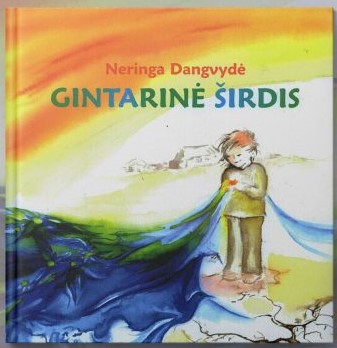
Today, the European Court of Human Rights found a violation of Article 10 (freedom of expression) on the account that labelling a book of fairy tales as harmful to children solely because of LGBTI content breached the European Convention.
Published in 2013 by the Lithuanian University of Educational Sciences and written by the late lesbian writer, Neringa Dangvyde Macate, the book was entitled ‘Amber Heart’ (‘Gintarinė širdis’), and contained fairy tales aimed at nine-ten-year olds, with partial funding from the Ministry of Culture. Adapted from traditional fairy tales, ‘Amber Heart’ included characters from different ethnic groups or with intellectual disabilities and addressed issues such as stigmatisation, bullying, divorced families and emigration. Two of the six fairy tales in the book had story lines about relationships and marriages between persons of the same sex.
On the book’s publication, eight members of the Lithuanian Parliament sent a letter to the University, relaying to it concerns expressed by associations representing families about literature which “sought to instil in children the idea that marriage between persons of the same sex was a welcome phenomenon”.
The Inspectorate concluded that the two fairy tales which depicted same-sex couples did not comply with a provision in Lithuania’s ‘Minors Protection Act’, stating that any information which “expresses contempt for family values” or “encourages a different concept of marriage and creation of family than the one enshrined in the Constitution or the Civil Code” is considered as having a negative effect on minors. The Inspectorate recommended that the book be labelled with a warning that it might be harmful to children under 14 years of age.
The University’s publishing house suspended distribution of the book in March 2014. A year later distribution was resumed, with the book bearing a warning label, in line with the Inspectorate’s recommendation.
Macate lodged civil proceedings against the University, arguing that depiction of same-sex relationships could not be considered harmful for children of any age, but in 2019 the courts ultimately endorsed the measures taken against the book and dismissed her claim. In particular, the Vilnius Regional Court found that certain passages were too sexually explicit and that the way in which the fairy tales depicted a new family model raised the question of whether the applicant herself had sought to discriminate against those who held values different from her own.
In 2020, Neringa Dangvyde Macate passed away and her mother continued proceedings on her behalf, taking the case to the European Court. ILGA-Europe had intervened in this case jointly with Article 19 and Professor David Kaye (former UN Special Rapporteur on Freedom of Expression). Read more about our intervention here.
In today’s Grand Chamber judgment, the European Court held, unanimously, that there had been: a violation of Article 10 (freedom of expression) of the European Convention on Human Rights. The Court found that the measures against the applicant’s book had intended to limit children’s access to information depicting same-sex relationships as essentially equivalent to different-sex relationships.
In particular, it could not see how, according to the national courts and the Government, certain passages – a princess and a shoemaker’s daughter sleeping in one another’s arms after their wedding – had been sexually explicit. Nor was it convinced by the Government’s argument that the book had promoted same-sex families over others. To the contrary, the fairy tales had advocated respect for and acceptance of all members of society in a fundamental aspect of their lives, namely a committed relationship.
As a result, it concluded that restricting children’s access to such information had not pursued any aims that it could accept as legitimate.
Welcoming the judgement, ILGA-Europe’s Head of Litigation, Arpi Avetisyan said, “The Court’s message is clear: Protection of children cannot be used as an excuse for censoring information about LGBTI rights, both on the part of the authors for promoting diversity and equality, and for children to learn about acceptance of all members of the society on an equal footing.
“This case also sends another important message, which is that all families are equal. In the Court’s own words: Promoting one type of family at the expense of another is never acceptable under the [European] Convention.”
The Court ordered Lithuania to pay 17,000 Euro to cover non-pecuniary damages and litigation costs. The funds are to be paid to the author’s mother.
A.B. and K.V. v Romania

Recognition of same-sex marriages in the context of freedom of movement in the EU through the prism of implementation of CJEU’s Coman judgment
Submitted jointly by ILGA-Europe and AIRE Centre
Macaté v. Lithuania

Freedom of expression, warning labels restricting artistic expression.
Submitted jointly by ILGA-Europe, Professor David Kaye, International Justice Clinic, University of California, Irvine, School of Law and ARTICLE 19: Global Campaign for Free Expression.
Coman and Others v Romania

Recognition of same-sex marriages in the context of freedom of movement in the EU through the prism of implementation of CJEU’s Coman judgment.
Submitted jointly by AIRE Centre, ICJ and ILGA-Europe.
How trans parents are better protected after European Court ruling
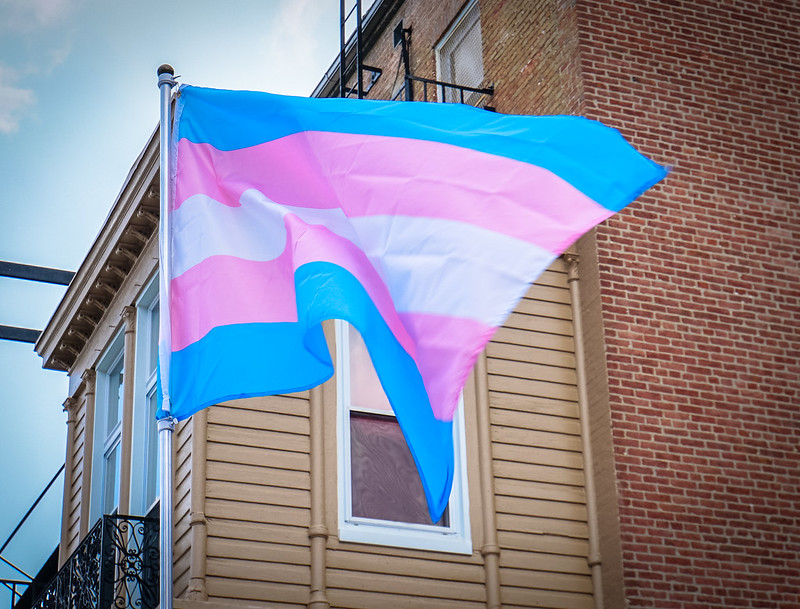
Recently, the European Court of Human Rights ruled in favour of a trans woman in Russia who was denied access to her children because of her gender identity and transition. Read on to find out how this may benefit all trans and LGBTI parents in Europe.
For four long years, A.M. did not see her own children. This was not her decision. She was denied her right to love, care for and nurture the bond with her children because of her gender identity and her transition, after her ex-spouse obtained a court order. Now, the European Court of Human Rights has ruled in her favour in a landmark judgment. This is the first time the court has found a violation of the prohibition of discrimination (Article 14) because of a person’s gender identity. It also found a violation of the applicant’s right to private and family life (Article 8).
A.M., the applicant in the case, is the parent of two children born in 2009 and 2012. After seven years of marriage, in 2015 she separated from her wife and began her legal gender recognition process to live in the gender she identifies with. She continued to see her children for over a year, until a district order obtained by her ex-partner cut off visitation in 2017.
The Russian courts argued that the decision to restrict the applicant’s parental rights was necessary, as contact with the trans parent would have a “negative impact on the mental health and psychological development” of her children. It also claimed that visitation could violate so-called propaganda law, which bans public statements in relation to LGBTI people in Russia.
However, the European Court of Human Rights noted that the domestic courts made their decision “in the absence of any demonstrable harm to the children,” failing to demonstrate that the restriction was justified and well-substantiated. Notably, the court found that the applicant had been discriminated based on her gender identity in comparison to other cis parents, saying that she has been “treated differently from other parents who also seek contact with their estranged children, but whose gender identity matches their sex assigned at birth.” It also added that depriving A.M. of any contact with her children could “have irremediable consequences for relations between the child and the parent with whom that child does not live.”
The court awarded the applicant €9,800, even though she had not asked for pecuniary compensation, concluding that “such damage cannot be compensated for solely by the finding of a violation.”
Every fourth trans person in Europe is a parent and this judgement gives legal security to many of them. Now it has been confirmed that discrimination based on gender identity, prohibited under the European Convention, applies in parental rights cases. If you are a good parent, that’s what matters, irrespective of your gender identity
From a children’s rights perspective, when someone tries to limit parental rights for trans and LGBTI parents more broadly, the main argument used is that it is has detrimental effect on children. In other words: they say children would suffer because of their parent’s gender identity. The court has made clear that it is in the best interest of the child to have a loving parent and that to restrict visitation just because a parent is trans is not a good enough reason.
The European Court of Human Rights is the court of law of the Council of Europe, of which Russia is a member. Judgments of the European Court of Human Rights are binding on all Council of Europe Member States; however, Russia has ignored the rulings several times. In 2020, draft amendments to the Russian Family Code would have seriously negatively affected legal gender recognition procedures. In November these amendments were withdrawn.
“We call upon the Russian authorities to respect the court’s decision and immediately end the discrimination of trans families,” said ILGA-Europe’s Executive Director, Evelyne Paradis.